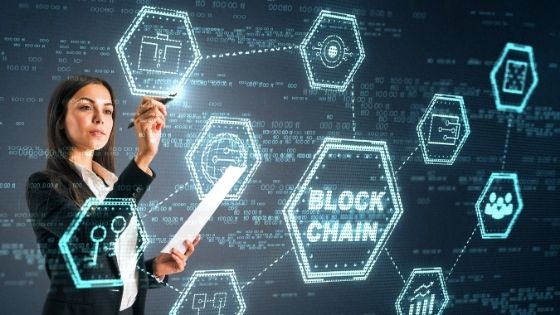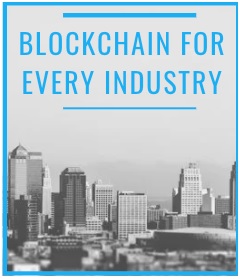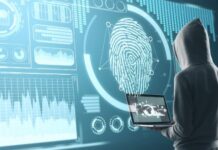Blockchain is a distributed network that is composed of several nodes. As the name suggests, it is a chain of blocks with the data stored electronically in a digital format.
Each block in a blockchain is a set of data that holds a different set of information. The stored data in the blockchain is permanent which means it cannot be deleted but if there is a need to change the information, it can be done by adding a new block. Once the data is filled, it is linked to the previous block, making a chain of records in chronological order. This also requires an agreement from all the parties that are involved in the process, making it secure.
Blockchain development can be used in almost every industry. For instance, Automotive, Banking, Education, Healthcare, Voting, Retail, Supply chain and Transportation. It is beneficial to all these industries because it is fast and secure. It eliminates the need for human involvement in many factors as the process is approved by a network of thousands of computers resulting in less human error and an accuracy of information.
Blockchain for Every Industry
Smart Contract
A Smart Contract is a digital automated agreement between two parties. It is a computer code that can be built into the Ethereum blockchain to verify a contract agreement. Once the contract conditions are agreed and met, the agreement will be automatically carried out.
As an example, a supermarket wants to buy fruits from a farmer. The supermarket can lock the funds into a smart contract and once the delivery is made the transaction will be approved and funds will be released to the farmer. However, if the farmer missed the deadline or did not follow the conditions of the contract fully, it will automatically be canceled.
This would solve the problem of products being lost or misplaced. The supplier will be more attentive when it comes to supplying the products as they will only receive the money when the correct and full delivery is made. Additionally, the information will be recorded in blockchain as it travels through the supply chain thereby, if a product gets damaged or lost the buyer would be able to trace which smart contract is not fully fulfilled and choose not to work with those parties again.
Cryptocurrency
Blockchain is a bedrock for cryptocurrencies. Cryptocurrencies are digital currencies for example bitcoin. These currencies can be used to buy goods and services such as cars and homes without the need for a central authority.
With blockchain, crypto can be sent to anyone around the world without the requirement for banks and currency exchange. It can be bought using a digital wallet or trading platform. After the purchase, the transaction is recorded in a public ledger which is secure and eliminates many processing and transaction fees.
Banking
By integrating blockchain technology into banks, the efficiency could be improved specifically for international trade. In order to facilitate international trade, banks typically have foreign currency accounts. These accounts are usually operated by several intermediaries such as customs and port authorities. This requires maintaining and operating different ledgers across all actors in international trade. Blockchain applications could help minimize inefficiencies of operations by operating as one ledger, which is distributed across all parties.
Banks can easily exchange funds between institutions in a secure and quick manner. For instance, in the stock market, it can take up to three days for a settlement and clearing process, which can be done in minutes with blockchain regardless of holidays or the time of a day.
Automotive
In the automotive industry, blockchain can act as a digital passport of the vehicle. During the process of reselling a car, the buyer can never be sure that the records of the vehicle they want are not falsified. The use of blockchain allows users to store the complete history of the vehicle, allowing consumers to easily confirm that the vehicle they want is reliable and is not forged. Also, information can be easily shared with third parties, for example, car insurance companies.
A blockchain-based network can enable ride-sharing services which could allow the drivers to transact without being controlled by a central authority such as uber. The transaction between participants will be equipped with smart contracts, which will enable the driver to receive their payment when riders have been delivered to their destination.
With the help of blockchain platforms such as Hyperledger Fabric and Ethereum, automotive organizations can track the material components and parts across their supply chain.
Healthcare
Blockchain could help make medical records globally accessible. The history of a medical record can be traced back to its origin. This feature could allow patients to easily transfer their records to other countries without having to travel to a country. Patients can also have complete control over their records, giving them the option of who can access their records.
Blockchain can also prevent fake medicines from being exported. The information that gets stored is not easily tampered with or cannot be deleted at will, with the correct information stored in the blockchain system as it travels through the network, it is possible to eradicate instances of fake drug makings.
Government
Blockchain technology can also be used in voting. This can involve issuing a cryptocurrency or token for each voter in a country. The voter would then send their token to the address of the candidate they want to vote for. This will eliminate the need for human counting, recounting, or any real concerns that fraud might threaten the election.
Education
Using blockchain, an institution could verify the academic record of a transfer student with a few clicks. The same concept applies to sharing credentials with prospective employees. The information that is already stored on blockchain comes with added security which makes it impossible for the applicants to falsify their academic credentials. This assures employers that new hires have the necessary knowledge needed to perform well in their job.
Teachers can also use blockchain technology in their teaching process. For example, a teacher could create lessons and courses on blockchain, and then assign tasks for students. The blockchain smart contract would then verify the completion of the assignments and assign another task until all tasks are completed.
Retail
Blockchain technology can be used in retail. Customers and buyers can obtain detailed information about the product. The information can include where the product is harvested, its environmentally friendly status and its ethical labor content. It will also prevent buyers from buying fake products from the manufacturer.
One example that uses blockchain technology is Carrefour. Every product that they offer contains a barcode that is scannable from any mobile device providing information about the product’s origins, the date it was harvested and whether any pesticides are used. Also, they track their products through blockchain from farm to store such as meat, milk and fruit.
For more information about how to expand your mobile app businesses using blockchain technologies, businesses may reference the role of blockchain in revolutionizing the mobile app industry.
Transport
Through blockchain technology, a load can be tracked and traced as it travels through locations by having access to the internet, creating a detailed chain of custody. It can also be used to minimize claims. With full detail of the travel chain, one can know the time of pick up and delivery, thereby, creating unalterable evidence to show if a load was delivered on time or not.
With the ability to track a food product’s route from its origin to delivery, it may be possible to find the sickness that is caused by conceiving food. Contaminated food can be traced back through each stop to its origin which will allow the identification of the problem to occur sooner and potentially save lives.
Real Estate
Organizations spend tons of money on real estate brokers when they have to buy a property. With the help of blockchain technology, this can be avoided. For example, a smart contract can be made between buyer and seller. If one wants to sell a property, there will be no need to hire a broker to do the paperwork and find a buyer. All the information can be stored in a blockchain, and once the buyer funds are properly submitted, the deed of the property will be transferred to the buyer.
Conclusion
Using blockchain technology, organizations can reduce costs by eliminating the use of banks, transaction fees, central administration, clearing agents or any central authority. All the information is stored digitally and is organized in a transparent, verifiable, and secure way. It can be accessed anywhere in the world.
Transactions and business operations done through blockchain are more accurate, efficient, secure, and low-cost with fewer middlemen.






















